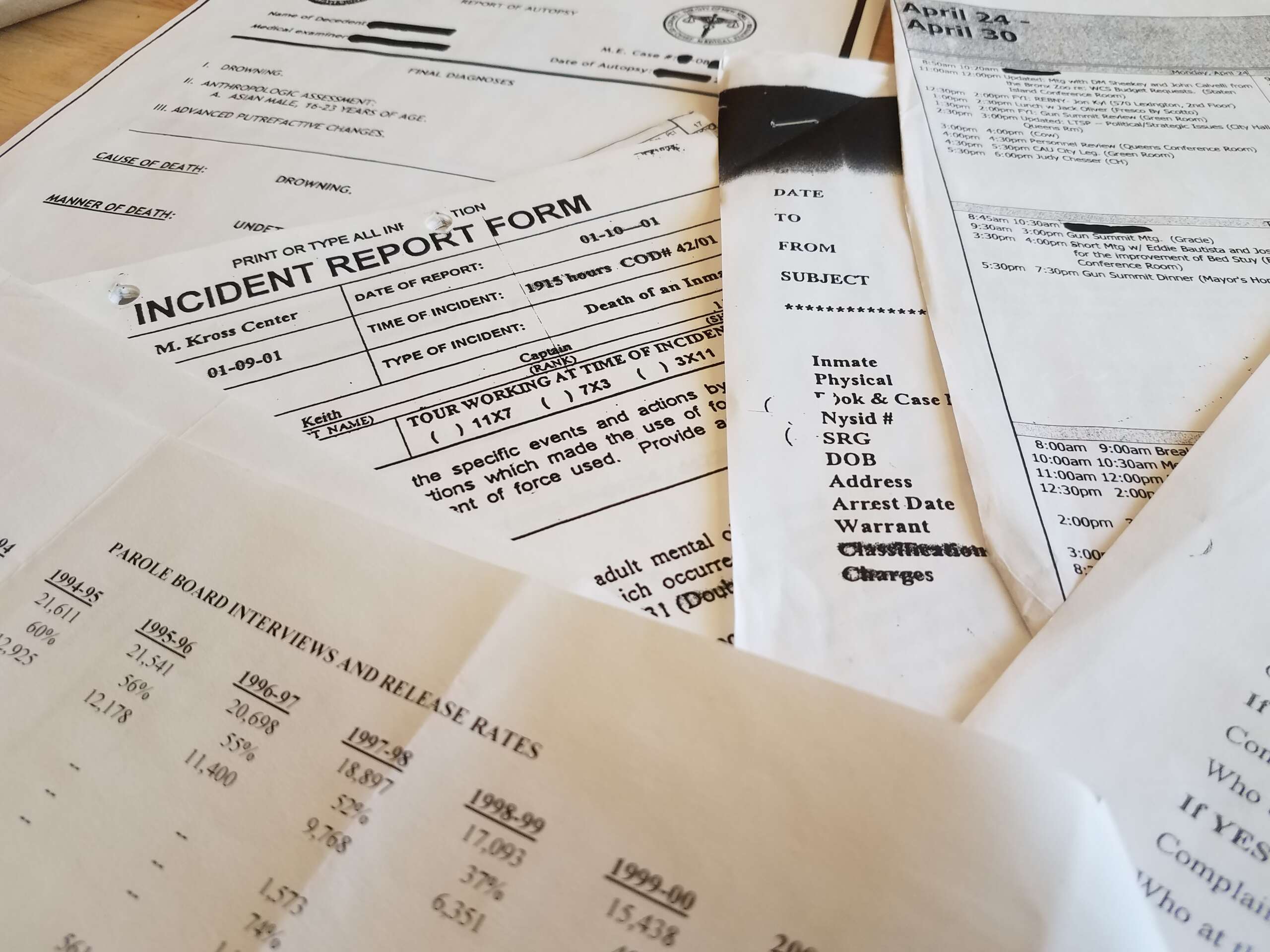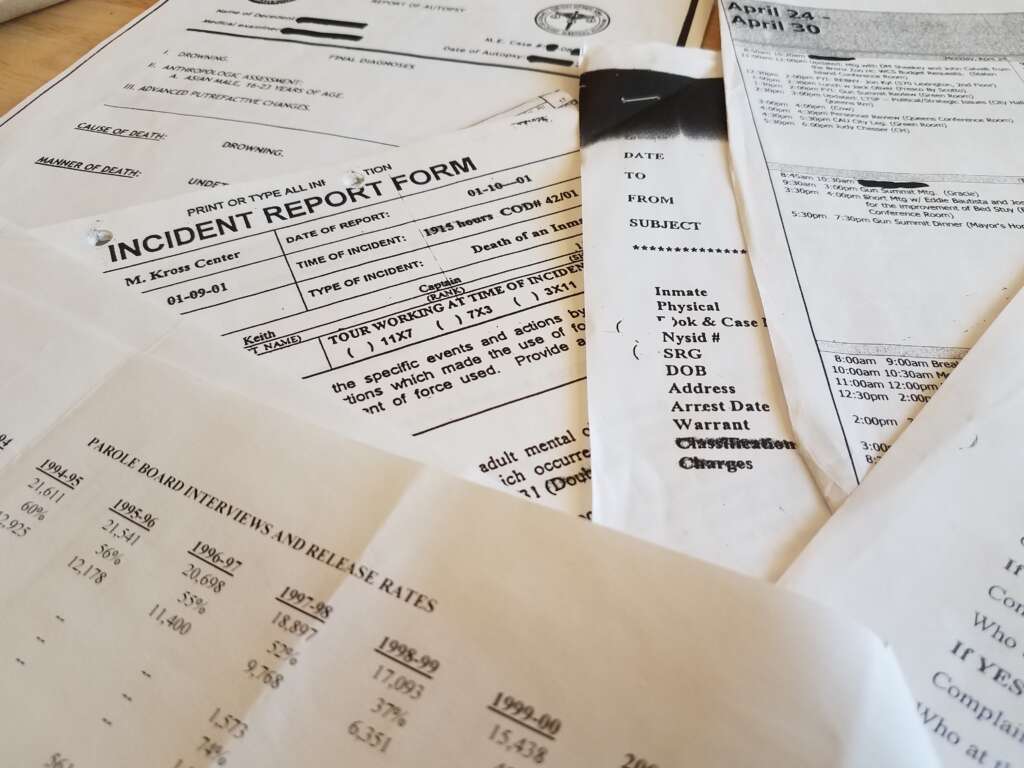“It is time for New York City to pave the way to a modern, functioning FOIL landscape. The public is unable to understand, debate, and challenge government practices if it is kept in the dark about what they are.”
 Government documents City Limits previously obtained via FOIL requests. (City Limits)
Government documents City Limits previously obtained via FOIL requests. (City Limits)
The New York City Office of Technology and Innovation recently extended its deadline to respond to a Freedom of Information Law (FOIL) request by The Legal Aid Society—for a whopping 40th time. The request, which was submitted back in January of 2021, sought access to records related to the agency’s purchase and/or use of surveillance giant Palantir’s products.
This more-than-four-year wait for records is not an aberration. Legal Aid is still waiting on responses to a 2022 FOIL request to the New York City Police Department (NYPD) for records related to the accuracy of ShotSpotter (a tool the NYPD uses to try to detect gunshots), a 2023 FOIL request to the NYPD for video from the Knightscope K5 Times Square Robot from a single day, and many more.
Legal Aid is a nonprofit law firm for New York City residents who are unable to afford private counsel, and our Digital Forensics Unit submits FOIL requests like these to maintain an up-to-date understanding of the surveillance technologies and practices that affect the people we serve. We believe—and the text of FOIL itself recognizes—that “government is the public’s business.” But agencies’ seemingly endless delays leave us, our clients, and the public at large, without access to information about how our government is using its power and resources.
That’s why we’ve been pushing for legislation both in Albany and at City Hall that would significantly improve FOIL processes. This year, the full New York State Legislature passed the FOIL Timeline Act, which would have imposed limitations on agencies’ delays in producing responsive records. Unfortunately, Gov. Kathy Hochul vetoed it.
But there is still hope for greater transparency in New York City. Intro 1235 aims to make the FOIL process more efficient and auditable by allowing the public to access and search all records produced by city agencies in response to FOIL requests, and by providing statistics on city agencies’ FOIL practices—including their average response times.
All requests to city agencies would be processed through an online portal that would also indicate relevant dates, extensions, and decisions with respect to each request. The portal would also contain information about any appeals to agencies’ denials of FOIL requests and any subsequent lawsuits. And the portal would show the amount that the requester paid to the agency in fees, and any attorney’s fees that the agency was required to pay to a requester in a FOIL-related lawsuit against the agency.
Intro 1235 would reduce unnecessary inefficiencies in the FOIL process for both requesters and agencies. The ability to access other FOIL requests and responses through the portal would obviate the need to submit duplicative requests—which in turn would obviate the need to fulfill duplicative requests. And publicizing agencies’ patterns and practices with respect to producing records would make clear where additional reforms or resources are necessary.
It is time for New York City to pave the way to a modern, functioning FOIL landscape. The public is unable to understand, debate, and challenge government practices if it is kept in the dark about what they are. Intro 1235 is urgently needed to allow FOIL to serve its intended purposes, and improving the portal would demonstrate that FOIL reforms can be not only workable, but also more efficient for all parties involved.
We support the passage of Intro 1235, and we hope New Yorkers will join us in pushing for greater transparency across our city.
Laura Moraff is a staff attorney with the Digitial Forensics Unit at The Legal Aid Society.
We want to hear from you!
Take a short anonymous survey to help us deliver content to empower our community.

